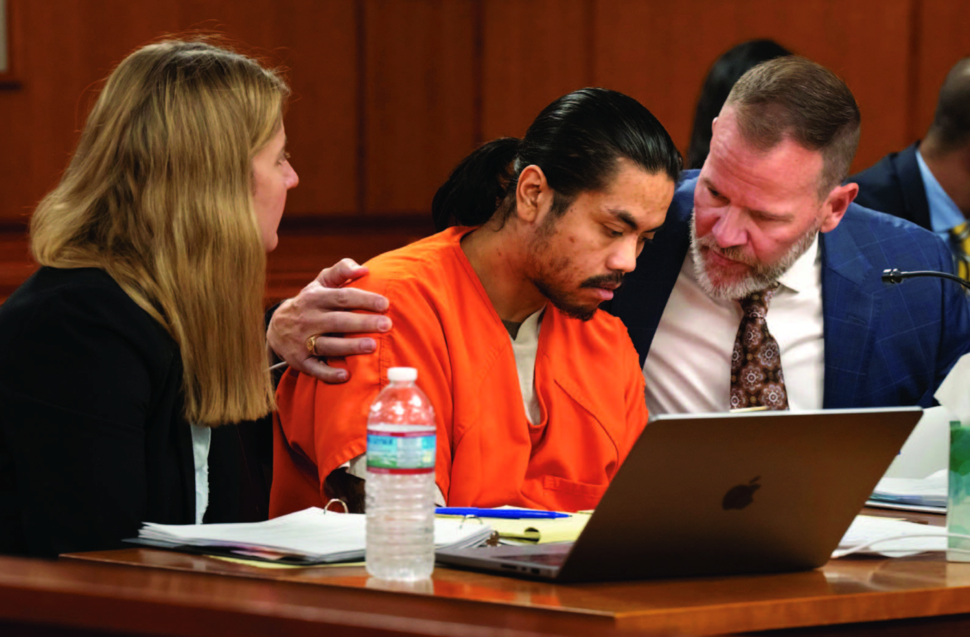
Back in May 1989, one of those mornings at Portland Harbor stopped being peaceful. A fisherman spotted something near the pier. At first, he thought it was a tarp. Then, it rolled. The color of skin in cold water is something you never forget. The body was a teenage girl. Jessica Briggs. Sixteen.
By noon, police cars lined the wharf. People gathered behind yellow tape. Someone whispered a name. Anthony Sanborn Jr., another teenager. He and Jessica had dated once.
Detectives said the case was airtight. Witnesses claimed they saw the two near the docks that night. One said she saw him running. Another swore she heard a scream. The jury listened, nodded, and after three years of legal motion, a verdict came down: guilty. Anthony was nineteen when the sentence fell: seventy years.
Years That Didn't Move
Prison time stretches differently. Days crawl, seasons blur, memory bends. Anthony kept saying, "I didn't do it." Most tuned him out. He wrote letters anyway. Some never left the cellblock. Some did.
Sanborn filed a post-conviction review, and his legal team began looking for missing discovery that was never turned over. The biggest surprise came from the witnesses. They had grown older, guiltier, softer. One recanted. Said she'd been scared, that detectives filled in what she couldn't remember. Another admitted parts of his story were made up. It sounded like fiction, but it wasn't.
The case, once closed tight, began to leak.
The Lawyer from Portland
Timothy was working as co-counsel with Amy Fairfield. When he joined the team, he didn't promise miracles. He just said, "Let me read everything." He ran a small criminal-defense practice downtown. People in court circles knew him as calm, methodical, and stubborn in the right way.
He started from the bottom: transcripts, handwritten police notes, every page the state had touched. There were 5,000 pages of evidence found in the old detective's attic.
When hearings reopened, Zerillo asked the questions that hung in the air for twenty-seven years. Why were these notes never shown to the defense? Why did the same witness give two completely different versions? His tone never rose. He let silence work harder than words.
In court, one woman broke down mid-sentence. Another man stared at his shoes, then said he'd been drinking when police first talked to him. Every confession that unraveled made the courtroom quieter. Even the judge stopped taking notes for a moment.
The Long Road to the Door
It took months. Testimony, cross-examination, experts arguing over memory and science. Portland followed every headline. Outside the courthouse, protesters fiercely held positions on both sides. Inside, it wasn't slogans, just slow truth-telling.
In late 2017, the case shifted. Prosecutors called for a closed meeting. They had 5 weeks of testimony when the state cut a deal. The seventy-year sentence was vacated, replaced with time served. Anthony had spent twenty-seven years in prison. The conviction would remain, but he could walk out that day.
He didn't move when the judge read the order. His hands trembled, but he kept them folded. Someone in the back whispered, "He's free," as if saying it too loud might break the spell. When the guards finally led him out, the hallway was filled with cameras. Flash after flash. He blinked against the light like a man stepping out of a cave.
Outside, autumn leaves were falling. Zerillo walked beside him through the crowd. Later that night, when asked what the victory felt like, Zerillo said, "It's not victory. It's repair work."
What Stayed Broken
The release didn't fix everything. It couldn't. The record still lists convicted for murder. The state still believes it got the right man, only punished him too harshly. But the cracks are there, impossible to ignore.
The case forced Maine to look at how it treats young defendants. Sixteen then, fifty now. The law had changed around him. So, had people's patience for certainty. It also made defense lawyers everywhere dig a little deeper into dusty boxes. Nobody wants to find another Sanborn file twenty years from now.
For Zerillo, it was more than a case. It became proof that persistence still matters. He tells younger lawyers to trust their curiosity. "Read the notes nobody reads," he says. "That's where the truth hides."
Back to the Water
Anthony lives quietly. People pass him without knowing. Sometimes an old fisherman nods hello, unaware of who he's nodding to. Anthony just smiles.
And Zerillo? Still in Portland. Still reading late into the night. Still convinced that justice, like the tide, always leaves something behind when it pulls away.
He once said in an interview that the hardest part of the job is not losing faith. "You work years for a moment," he said. "Then the moment comes, and it's gone. All you can do is hope it meant something."
It did. For one man. For one town that learned the cost of getting it wrong. And for a lawyer who keeps walking toward the water, one case after another, waiting for the tide to bring something new to the surface.




